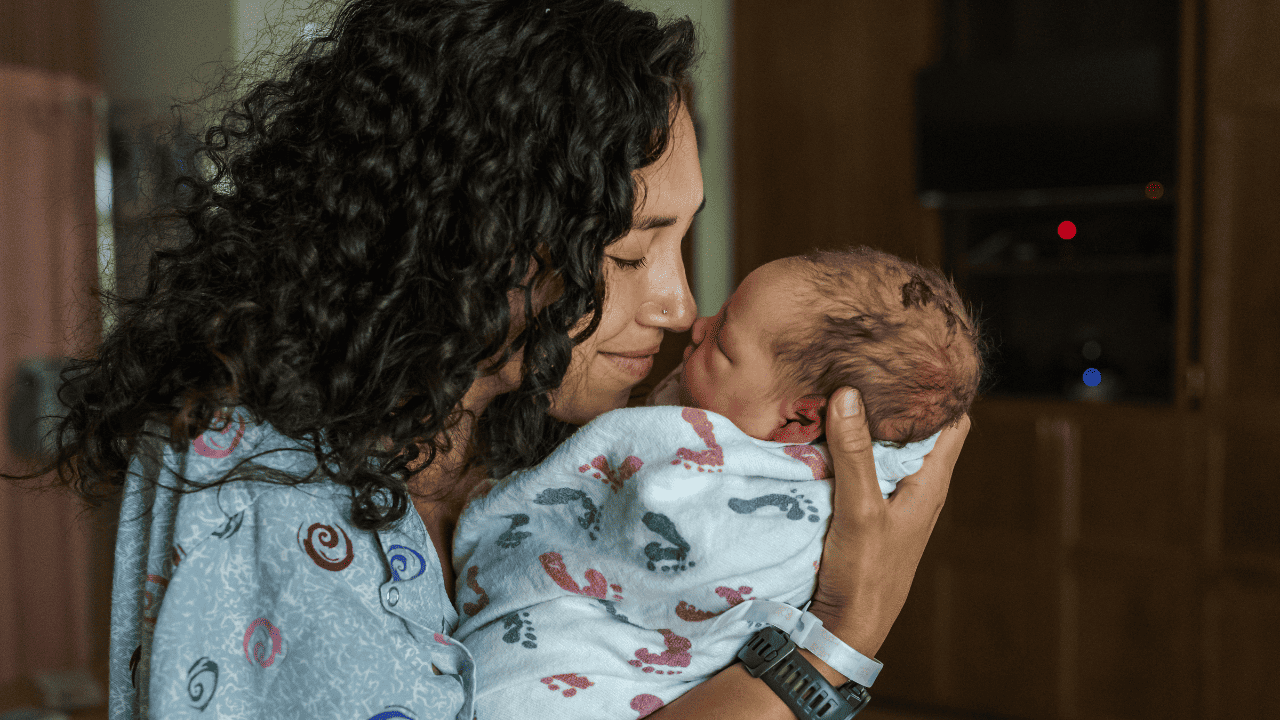 | | | | About the Author Melissa Weekes is a Product Development Specialist. Prior to joining Great Kids® in 2018, she worked as a home visitor with Public Health Services where she used the Growing Great Kids® Curriculum. Melissa lives in Nova Scotia, Canada, with her husband and enjoys any opportunity to be creative! |
Don’t you love crawling into bed each night? The weariness of the day seems to soak away as you snuggle under the covers and feel the comfort of your bed envelop you.
According to researchers, our bodies and brains need sleep as much as breathing air and drinking water, but the amount of sleep required differs from person to person.2
How much sleep do you need?
Interestingly, in the animal kingdom, koala bears sleep up to 22 hours a day, while horses nap for only about 3 hours a day, mostly on their feet!4
Personally, I fall on the koala bear end of the sleep spectrum. Apparently, if I didn’t get enough sleep as a child, I was NOT a joy to be around – “whiney” was the word used. I don’t think much has changed – I can be cranky when tired. And if I don’t get a good night’s sleep, my brain doesn’t function optimally.
This makes sense, as when we sleep, our brain sorts and stores information, creates new connections, eliminates waste, boosts our immune system, and releases hormones…and that’s just part of the general maintenance list.2
When we get a good night’s sleep, we can focus and be productive. In contrast, a lousy night’s sleep leaves us feeling like we’re in a fog, makes it hard to focus, and causes our productivity to plummet. (Some of you coming off a rough night are nodding your head).
Well, apparently, having “baby brain,” “pregnancy brain,” or “parent brain” can be a similar experience. Yes, “baby brain” for expectant and new parents is a real thing!1,2 Intelligent, sharp-minded adults report having difficulty focusing or concentrating, experiencing brain fog, or forgetting something they should have easily remembered, like where they put their keys.2 And we can all relate to the experience of fishing in a mirky mind swamp for a simple word or name that’s eluding us!
Parents, the science is in! You are not losing your mind! Instead, your brain is putting all its energy into wiring new, complex circuits to help you care for and bond with your baby.1,2,3
Expecting and having a new baby is an incredible time when the parent brain takes shape.1,2 According to researchers, there’s no other time like it in adulthood where the brain is as flexible and undergoes as much change.1,2 This timeframe has been compared to the brain changes that happen during adolescence. (And, like the teenage years, it can feel a bit awkward at first).1,2
The reason for all these changes is that the new circuits being wired in expectant and new parents’ brains support them to be better able to pay attention to and tune into their infant’s cues and signals.1,2
We’ve all witnessed that parent with supersonic hearing who can pick out their child’s cries over a room full of toddlers in melt-down mode. That’s the parent brain in action.2 Or we’ve listened to primary caregivers lament that they’re instantly awake the moment their child stirs while their partner sleeps through everything. Yep, blame it on the parent brain.2
If you’re a parent, your brain not only supports you in tuning into your child but also sets you up for success by releasing feel-good hormones every time you respond to your kiddo with warmth.1,2,3 This pattern of experiencing rewarding feelings each time you nurture your child can motivate you to interact with them more.1,2,3 In other words, the parent brain is wired to support attachment and bonding!2
And, if you’re a parent, the same emotional areas of the brain that change in the process of becoming a parent are the same brain circuits built in your own childhood.2 This means that, even if you didn’t have nurturing experiences as a child, you can rewire your own brain and improve your emotional health each time you respond to your baby with loving care.2
As if that isn’t incredible enough, according to the research, ANY adult who consistently nurtures children can grow a parenting brain.1,2 The amount of time an adult spends connecting with and caring for a child, especially in the first few weeks and months after birth, directly impacts the amount their brain changes and fine-tunes to that baby’s unique cues and needs.1,2 This is one reason why it’s so important for ALL parents to have the opportunity to grow their confidence in connecting with and caring for their children.1,2 Hands-on care where parents change dirty diapers, look in their baby’s eyes, and soothe their infant helps build their parenting brain and skills.2
This reminds me of part of the mission of Great Kids, which is to provide products and services that shape a world where all parents and caregivers become competent in their ability to nurture children. With that in mind, (drum roll) our much-anticipated Growing Great Kids Next Generation Prenatal manual is currently under development, and we can’t wait to share the latest early bonding and attachment research with you! So please stay tuned and follow us on social media for updates and an anticipated release date.
And talking of anticipated release dates, when it comes to expecting a baby, the good news is that experiencing “baby brain” is usually short-lived.1 Most parents find that as their child grows and they get more sleep, their mental capacity returns. But the super parent brain? Well, that’s here to stay!1,2
References
1. Conaboy, C. (2022). Mother brain: How neuroscience is rewriting the story of parenthood. Henry Holt and Company.
2. Kirshenbaum, G. (2023). The nurture revolution: Grow your baby’s brain and transform their mental health through the art of nurtured parenting. Grand Central Publishing.
3. Martínez-García, M., Paternina-Die, M., Barba-Müller, E., Martín de Blas, D., Beumala, L., Cortizo, R., Pozzobon, C., Marcos-Vidal, L., Fernández-Pena, A., Picado, M., Belmonte-Padilla, E., Massó-Rodriguez, A., Ballesteros, A., Desco, M., Vilarroya, Ó., Hoekzema, E., & Carmona, S. (2021). Do pregnancy-induced brain changes reverse? The brain of a mother six years after parturition. Brain Sciences, 11(2), 168. https://doi.org/10.3390/brainsci11020168
4. Oakes, E. (2022, March 10). How the wild things sleep. CBC. https://www.cbc.ca/documentaries/the-nature-of-things/a-not-at-all-exhaustive-list-of-how-and-how-much-animals-sleep-1.6367772


